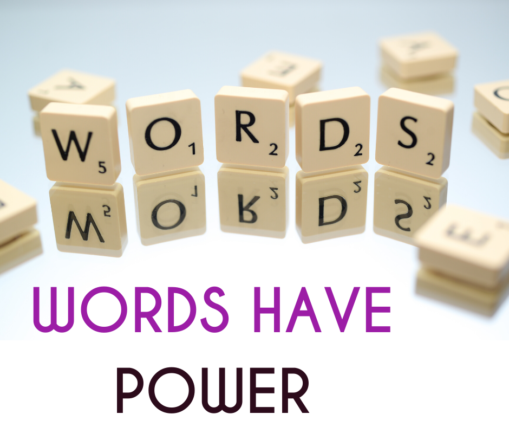
Have you ever noticed how your language can intensify your stress, anxiety or guilt while the opposite is also true-your language can minimize your stress, anxiety or guilt?
Your language affects your physical reactions too. (racing heart, sweaty palms, tense muscles)
This means that you can change the way you feel by changing your language.
I use this all the time. Making a few tweaks makes a difference.
TWEAKS
#1 Minimize Saying: “I Should…”
Should can make you feel guilty.
When you’re saying you should do something, you’re saying that you feel bad about yourself for something you haven’t done and you should do it.
It’s like you’re telling yourself you’re a bad person for not having done it.
- “I should go to church more often.”
- “I should visit my Mom more.”
- “I should clean house more.”
- “I should be more organized.”
- “I should do this, and I should do that.”
Get rid of the word SHOULD and either do the task, or be okay with not doing it.
Stop “shoulding” on yourself.
Try instead-
- “I could.”
- “I choose to.”
- “I want to.”
- “I desire to.”
#2 Minimize Saying “I Can’t…”
Saying you can’t do something is a sure way to ensure your failure.
Like Henry Ford said,
“Whether you think you can, or you think you can’t-you’re right.”
It brings your energy level down.
It takes away from the power you have to figure it out.
Your mind will believe the words you say and the thoughts you think.
If you really don’t want to do something you might say,
- “I choose not to.”
- “I am not willing to.”
Either one of those is more empowering than “I can’t.”
#3 Minimize saying “I Have To…”
Replace the phrase “I have to” with,
- “I get to”
- “I’m going to”
- “I’m so fortunate that I can…”
Instead of saying, “I have to go exercise”
Say, “I’m going to go exercise.” or “I get to go exercise.”
Instead of saying, “I have to clean my house.”
Say, “I’m fortunate I can go clean my house.”
“Have to”
implies you don’t have any control and
you’re a victim to whatever restriction has
been placed on your time schedule for the day
versus having a choice.
A victim mentality (poor me-I have to and I have no choice) also adds to stress, anxiety and negativity.
#4 Minimize Saying “I’ve Got a Problem…”
Change the word “problem” into “situation” or “challenge.”
“I’ve got a situation or challenge to overcome.”
It’s just a temporary obstacle to figure out.
#5 Use the word “AND” Instead of “BUT”…..
When you use the word “but” it can become a connector word that negates whatever was used before it.
So for example, if you were to say:
“I really like Jenny BUT……..she’s so controlling.”
“I really like my job, BUT……it’s so boring”
Whatever you say after the word “but” nullifies the positive statement before it.
It leaves the impression in the mind of the listener that you don’t like Jenny and you don’t like your job. It has the exact opposite effect.
If you were to say:
“I really like Jenny and…….sometimes she is controlling.”
“I really like my job and…..sometimes it is boring.”
It gives it a different feel.. It’s kinda hard to explain it in writing but (no pun intended) just try replacing the word “but” with “and” —and you can find out for yourself.
Your Words Matter…..


